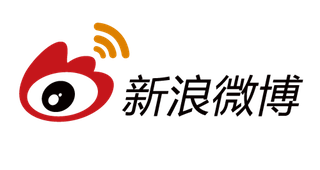Sales from social commerce expected to hit $9.2 billion by the end of 2012.
The way people shop is changing. People are turning to social media sites to find new products; 40% of Twitter users use the service to search for products. While the popularity of sites such as Facebook and Twitter should have you turning there for marketing potential, there is another factor that cannot be ignored: Asia, specifically the Chinese market.
The Chinese market is coming online
The following information is from China Daily reports and Lauren Indvik of Mashable.
- There are approximately 513 million Chinese internet users
- 193 million of those users are online shoppers
- Chinese online shoppers spend more than 5 hours a week on average online shopping
- In 2011 there was a 54% increase in online shopping sales, Chinese shoppers spent 123 billion dollars
- Online shopping is the fourth most popular activity in China, the second-largest in terms of growth
- The Chinese ecommerce market is expected to become the largest in the world in the next few years, surpassing the United States by 2015
Some see this increase as due to the rapidly growing middle-class in China. Though online shopping is a relatively new in China, it can only get stronger with time as consumers learn to use and trust the system. Chinese social media is playing a key role in this process as it gets people online and exposes them to products being marketed online.
Chinese social media channels
Censorship laws in China mean that solely using the popular North American social networking sites (Facebook, Twitter, YouTube etc.) will not give you access to this huge market. However, there are equivalent social networking sites that are incredibly popular in China.
The key players:
- Taobao
- Qzone
- Tencent Weibo
- Sina Weibo
- Renren
- Kaixin001
Taobao
While not a social networking site, Taobao is central to the Chinese ecommerce market. The site, owned by internet giant Alibaba Group, is the Chinese equivalent of eBay. This is where sellers and buyers interact directly to buy and sell goods.
Qzone
This social networking site is one of the top sites in China. It resembles MySpace and Facebook. In 2011 it reportedly had 536 million users. It charges a fee for most of its services, but remains very popular.
Tencent Weibo
Tencent Weibo is a microblogging site similar to Twitter in that its users must limit their message to 140 Chinese characters or less.
Sina Weibo
This site competes with Tencent Weibo as a microblogging platform. It has been described as a hybrid between Facebook and Twitter. The site posted a loss for its first quarter in May 2012 and have responded by deciding to add new premium features for which they will charge a fee.
Renren
Renren is the Chinese copy of Facebook. It is one of the largest social media sites in China, with about 137 million users. It caters to its Chinese market and is aimed at Chinese college students.
Kaixin001
Unlike Renren, Kaixin001 is a social networking site that is not aimed at students. It targets the white-collar workers of China and can be used for professional networking. It is still a social network site resembling Facebook, it was the first to bring several successful Facebook applications to the Chinese market (examples include Friends for Sale and Happy Farm).
Erasing the language barrier
The above social networking sites have been specifically created for the Chinese population due to the censorship of other international sites. Because of this, these sites are available in Chinese, but that is no reason to stop you from successfully getting involved with the market!
Using a professional translator is a simple way to erase the language barrier. LAT can provide you with the necessary tools to connect with Chinese consumers. Whether you need to create a multilingual presence in Asian social media networks, or translate your existing website to reach new markets, we can help.
LAT offers multilingual advantages
Are you ready to take advantage of the largest market for online sales the world has ever seen? Don’t let language hold you back. LAT has multilingual solutions for you.




